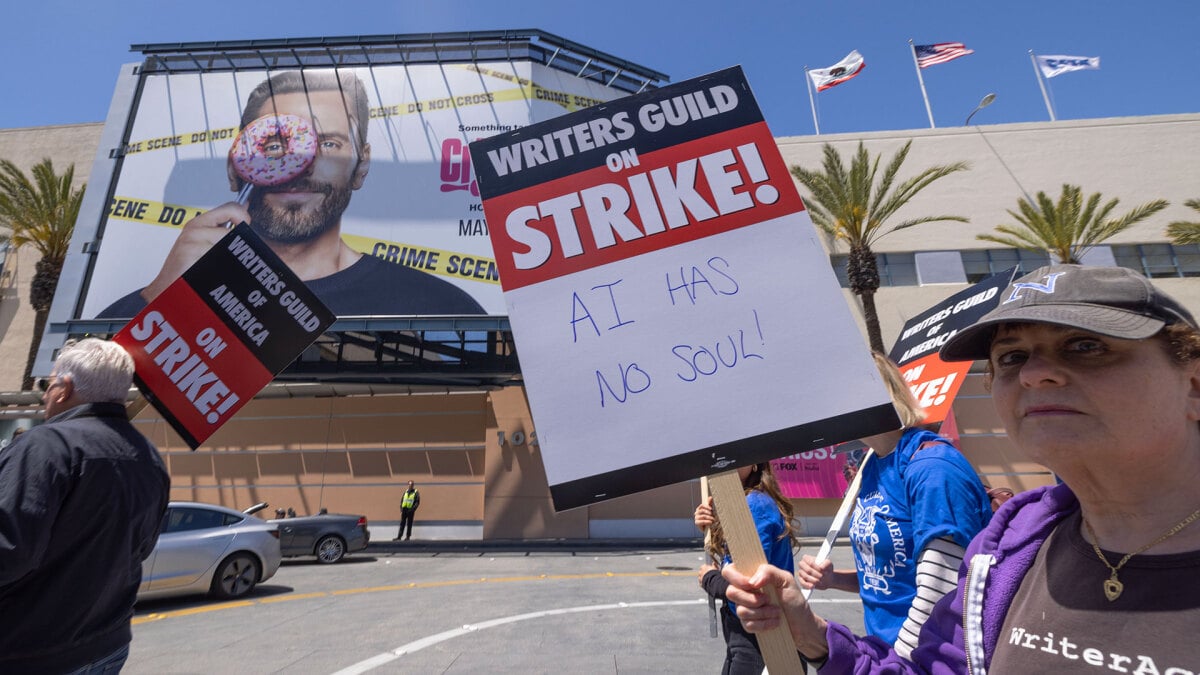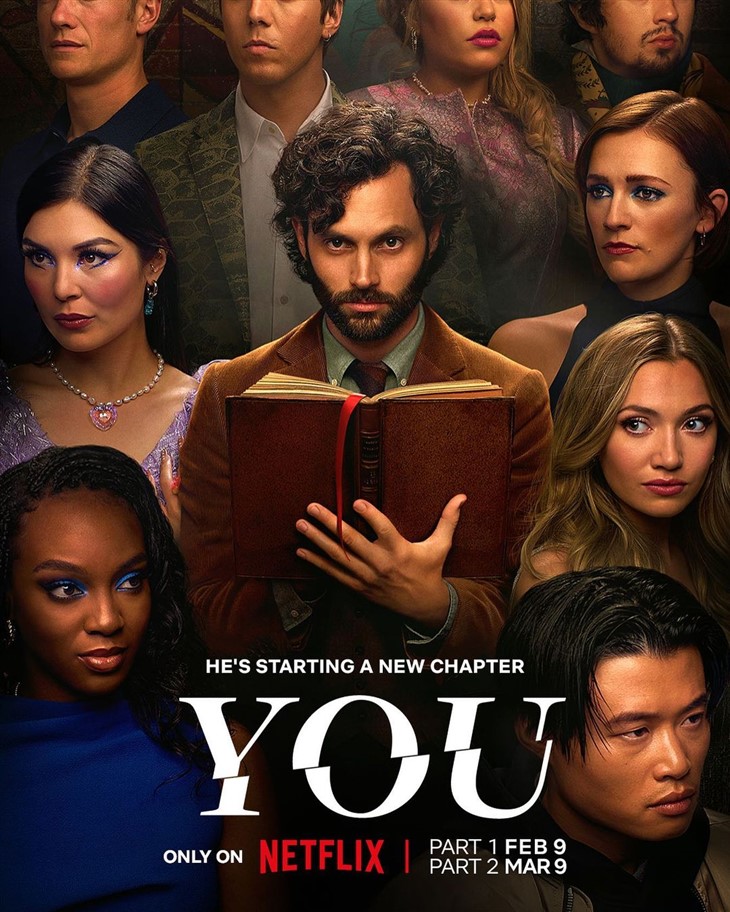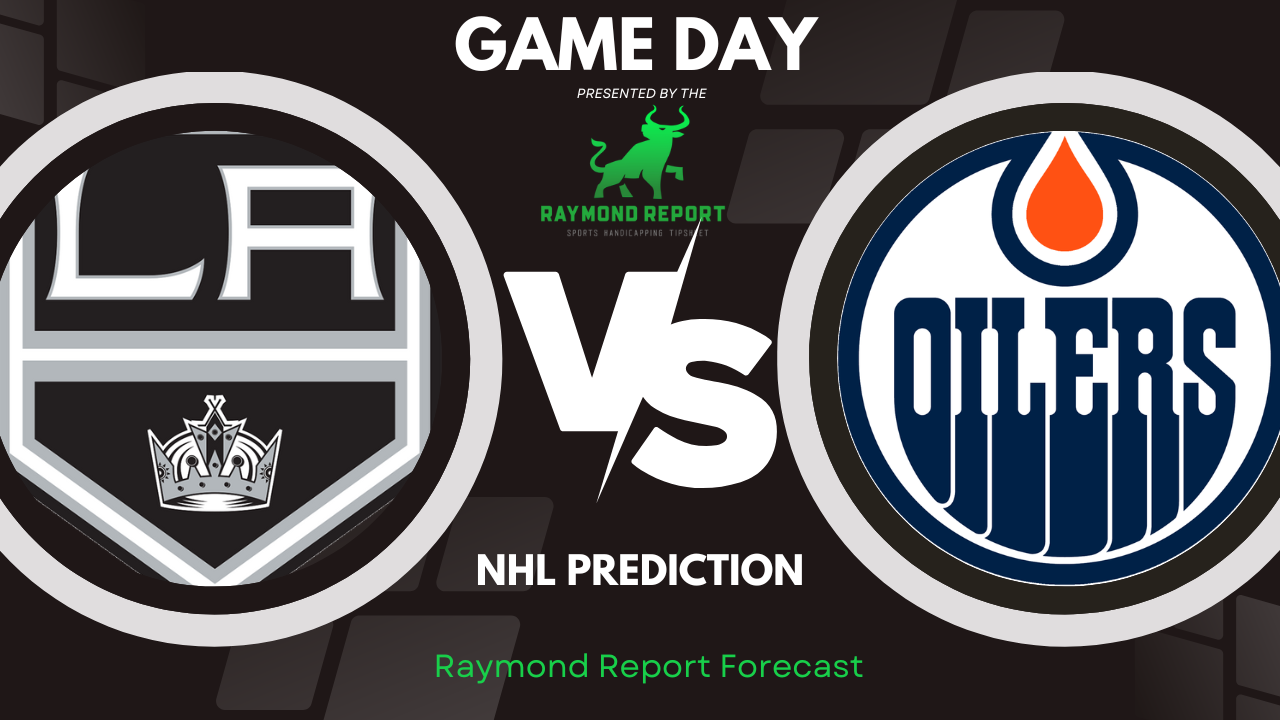The Hollywood Strike: What It Means For The Film And Television Industry

Table of Contents
The Core Issues Fueling the Hollywood Strike
The Hollywood strike is fueled by a confluence of long-simmering issues that have finally reached a boiling point. Both the Writers Guild of America (WGA) and the Screen Actors Guild - American Federation of Television and Radio Artists (SAG-AFTRA) have presented a unified front, demanding significant changes to their working conditions and compensation models.
Key Demands:
-
Fair wages and residuals in the streaming era: Traditional residuals, payments made to writers and actors each time their work is shown, have been significantly diminished by the rise of streaming platforms. Streaming services often pay a flat fee for a project, regardless of viewership, leaving writers and actors with far less income than they would have received under the old broadcast model. This has created a major financial disparity for many creatives.
-
Protection against the use of AI in scriptwriting and performance replication: The rapid advancement of artificial intelligence poses a significant threat to the livelihoods of writers and actors. The unions are demanding safeguards against the use of AI to replace human creativity, including clear restrictions on the use of AI to generate scripts or replicate actors' performances.
-
Improved working conditions and health benefits: The demands also include improvements in working conditions, addressing issues such as long hours, inadequate rest periods, and the need for better health benefits and pension plans. These are crucial considerations given the often-precarious nature of employment in the entertainment industry.
-
Transparency in streaming revenue data: The lack of transparency regarding streaming revenue is a major point of contention. The unions are demanding greater access to data so they can fairly negotiate compensation based on the actual profitability of shows and movies. Without this transparency, it's difficult to accurately assess fair compensation.
Impact on Film and Television Production
The immediate consequences of the Hollywood strike are already being felt across the industry. Production halts, release postponements, and financial losses are cascading through the entire ecosystem.
Direct Impacts:
-
Halted filming and production delays: Numerous television shows and films have been forced to halt production, leading to significant delays and uncertainty for planned projects. Many productions are facing indefinite delays, impacting their release schedules and overall budgets.
-
Postponement of film and television releases: The strike has already led to the postponement of several highly anticipated films and television shows, impacting box office revenues and audience expectations. This includes both major studio releases and smaller independent projects.
-
Financial losses for studios and production companies: The production delays and release postponements are causing significant financial losses for studios and production companies, who are bearing the brunt of the unexpected downtime. This financial strain will likely reverberate through the industry for months, if not years, to come.
-
Ripple effects on related industries: The strike's impact extends far beyond the studios and networks. Businesses that rely on the film and television industry, such as catering companies, equipment rental firms, and post-production facilities, are experiencing substantial losses due to the production standstill.
The Influence of Streaming Services on the Strike
The rise of streaming services is a central factor in the ongoing dispute. The shift from traditional broadcast television to on-demand platforms has fundamentally altered the economics of the industry, creating significant challenges for writers and actors.
Key Roles of Streaming:
-
The impact of streaming on residuals and compensation models: The move to streaming has significantly reduced residuals for writers and actors, as traditional payment models were not designed for on-demand content. This is a major source of contention, with the unions fighting for a more equitable system.
-
The use of data and algorithms by streaming services: Streaming services utilize vast amounts of data and algorithms to determine content strategy and marketing. However, this data is often opaque to the creators themselves, leading to a lack of transparency and making it difficult to negotiate fair compensation.
-
The power dynamics between streaming giants and labor unions: The vast power and influence of streaming giants like Netflix, Amazon, and Disney have created a significant power imbalance, making it difficult for unions to negotiate favorable terms. This imbalance is a central aspect of the ongoing conflict.
Potential Long-Term Effects of the Hollywood Strike
The long-term consequences of this Hollywood strike remain to be seen, but several significant potential impacts are already emerging.
Potential Long-Term Shifts:
-
Changes in contract negotiations and labor agreements: The strike could lead to significant changes in future contract negotiations and labor agreements, potentially leading to more favorable terms for writers and actors.
-
Potential shifts in the power balance between studios and unions: The strike may ultimately shift the power balance between studios and unions, giving the latter more leverage in future negotiations. This could influence the overall working conditions and compensation within the industry.
-
Long-term impacts on the creative process and content production: The protracted strike may lead to long-term changes in the creative process and content production, potentially impacting the diversity and quality of future projects.
-
The future of AI's role in filmmaking: The debate surrounding AI’s role in the industry is expected to intensify, leading to new regulations and ethical considerations around the use of artificial intelligence in film and television production.
Conclusion
The Hollywood strike represents a critical juncture in the film and television industry. The issues at stake—fair compensation, the impact of streaming, and the rise of AI—are vital for the future of creative work and the overall health of the industry. The outcome of the strike will have profound consequences for both workers and consumers. The fight for fair wages, creative control, and protection against AI is a fight for the future of Hollywood itself. Stay informed about the developments of this crucial Hollywood strike. Follow the news and engage in discussions to understand the implications for the future of film and television. Understanding the issues surrounding this Hollywood strike is crucial to shaping a more equitable and sustainable future for the industry.

Featured Posts
-
 9 Maya Makron Starmer Merts I Tusk Ne Poekhali V Kiev Analiz Situatsii
May 10, 2025
9 Maya Makron Starmer Merts I Tusk Ne Poekhali V Kiev Analiz Situatsii
May 10, 2025 -
 January 6th Falsehoods Ray Epps Defamation Suit Against Fox News Explained
May 10, 2025
January 6th Falsehoods Ray Epps Defamation Suit Against Fox News Explained
May 10, 2025 -
 Show Name Season 2 A Potential Spoiler Filled Replacement Show Is Now Streaming
May 10, 2025
Show Name Season 2 A Potential Spoiler Filled Replacement Show Is Now Streaming
May 10, 2025 -
 Edmonton Oilers Comeback Wins Game 2 Against Los Angeles Kings
May 10, 2025
Edmonton Oilers Comeback Wins Game 2 Against Los Angeles Kings
May 10, 2025 -
 Rhlt Barys San Jyrman Nhw Alfwz Bdwry Abtal Awrwba
May 10, 2025
Rhlt Barys San Jyrman Nhw Alfwz Bdwry Abtal Awrwba
May 10, 2025
